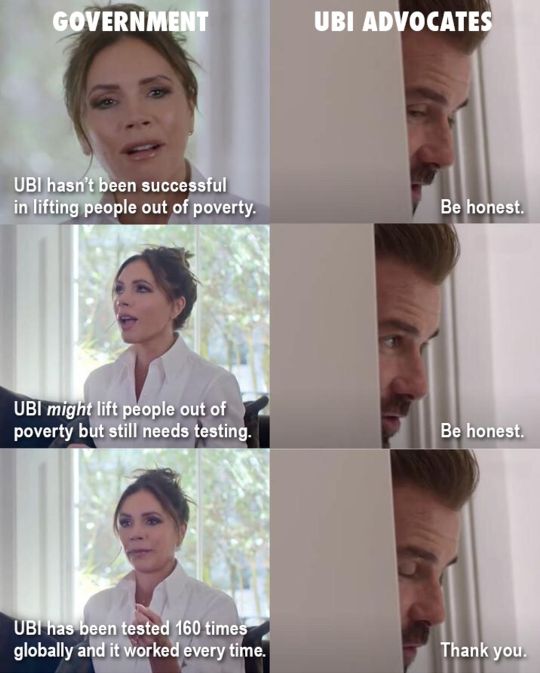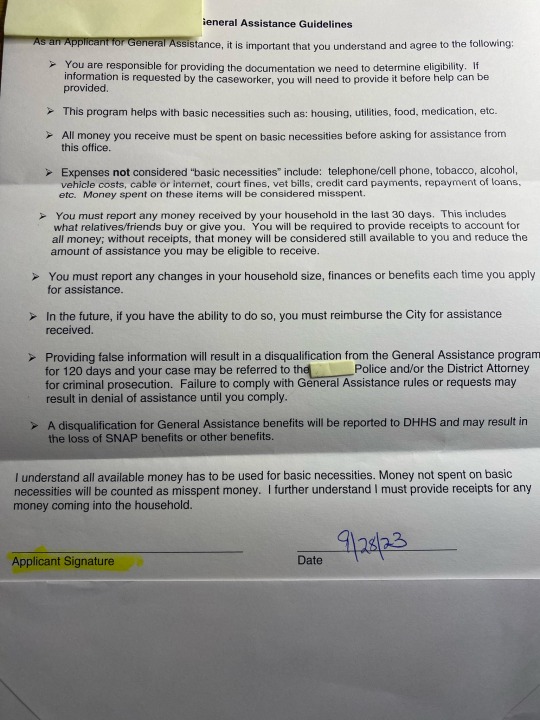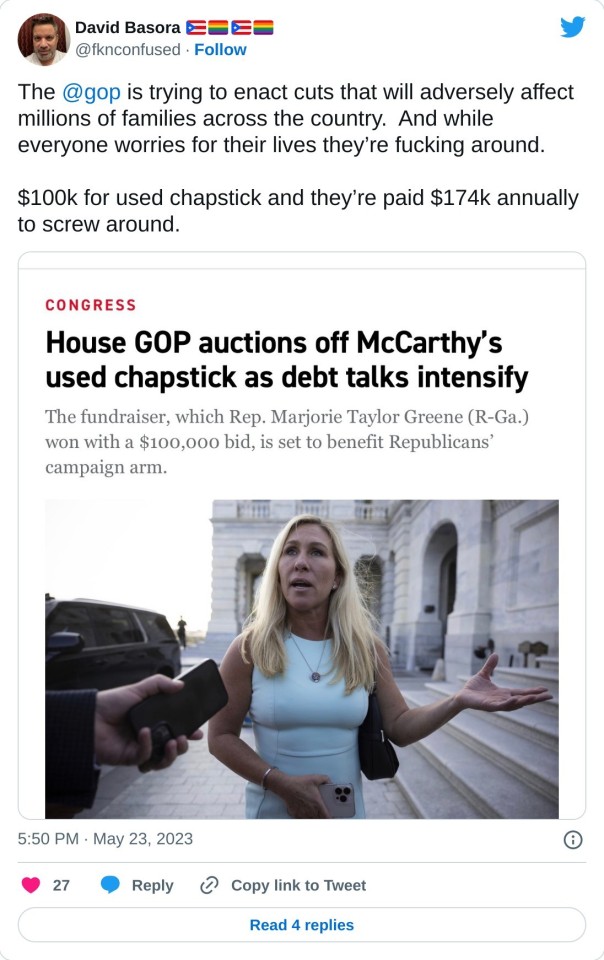#welfare programs
Text
I refuse to call government assistance programs “welfare” or “benefits”.
I’ve been on government assistance programs my whole life. I have never lived above the poverty line.
It’s a system that doesn’t care about my wellbeing, they care about doing the bare minimum to keep people alive enough to function and work, and if you’re disabled and cannot work, they give significantly less of a fuck.
And benefits?? What benefits?
Food stamps that run out within two weeks because I am budgeting with 8$ a day with literally dozens of dietary restrictions? Or do you mean the housing voucher that I have to never even have a gift card, penny to my name, Sams club membership, phone bill, literally anything that could be “income” in order to qualify? That same housing voucher system that if I mess up even once with I not only lose all government aid for at least 5 years, it’s also mandatory PRISON time for 1 year?? “Oh but they would never do that, right?” Nope! I have several friends who are now felons for minor lease violations and unhoused as a result! Oh maybe you mean the state health insurance that doesn’t cover most treatments, specialists, and testing I need and if I tried to make a gofundme to cover, I would lose aforementioned housing? Oh and we can’t forget all the money I get for being disabled, which is exactly 0$. I’m still fighting for SSI and have been for 6 years! That’s over 6 years with absolutely zero income. ZERO. And guess what, whenever I *do* get on SSI, I will lose my housing voucher. And I won’t be able to afford my current apartment because even in subsidized low income housing it’s too expensive for the maximum SSI “benefit” amount. And on SSI you can’t have savings over 2000$. Oh and they do make housing for people who are low income where you pay 30% of your income but I can’t even be on the waitlist since I don’t have any income. And on top of all this, I can never get married because I’ll lose all of the programs.
I could keep going. That’s not even half of the programs I’m a part of.
• None of them give me cash in hand. Even for vouchers I have to provide receipts for everything.
• Food stamps just straight up won’t even cover ineligible items. Which includes hot foods.
• I genuinely don’t believe that there’s a way to “game the system” and why would you? You would gain literally nothing.
• It’s designed to keep people poor. Once you make over a certain amount, you lose all or almost all benefits. There’s no way to slowly transition out of the programs, if you’re someone who’s able to. It’s all in or all out.
• All of these barriers are made significantly worse while unhoused/homeless. I’ve been homeless for over half of my life and there’s so many fucked up rules. If I missed one night staying in the shelter, I lost my housing voucher because I no longer was “verified as homeless” even if I was sleeping outside still.
#ranting#poverty#public welfare#welfare programs#government aid#government benefits#state benefits#disability benefits#SSI#disability#poor#poverty line#assistance#assistance programs#goverment assistance#usa specific#usa politics#chronically couchbound#poor people#classism#food stamps#ebt#housing vouchers#medicaid#state insurance#healthcare#health insurance#systemic poverty#forced poverty#welfare queen
486 notes
·
View notes
Text

#us politics#twitter#tweet#conservatives#republicans#Democrats#defund the military#defund the dod#2023#the pentagon#pentagon budget#welfare programs#child hunger#homelessness#poverty#sen. bernie sanders#vermont
57 notes
·
View notes
Text
Iowa Republicans are proposing sweeping changes to the state's food assistance program — including banning beneficiaries from buying grocery staples like meat, American cheese, or flour.
A bill co-sponsored by 39 Republican state legislators would limit those getting Supplemental Nutrition Assistance Program (SNAP) benefits to buying food on a more restrictive list from a separate program intended for pregnant women and children.
SNAP recipients wouldn't be able to buy a variety of foods, including white grain bread, buns with added nuts or seeds, white rice, pasta sauce, canned fruits or soups, baked beans, cheese slices, butter, or flour.
They would instead be limited to foods approved for the Women, Infants, and Children (WIC) program.
The foods people can purchase in the WIC program are much more restrictive than those allowed in SNAP. That's because WIC is designed to complement SNAP, and is meant to provide necessary nutrition specifically for — as the name suggests — pregnant women, new mothers, and infants, according to Michelle Book, the president and CEO of Food Bank of Iowa.
WIC is "not designed for people that rely on SNAP benefits to make ends meet," Book told Insider.
Book said the proposed changes would put an "additional burden on people that are food insecure" and are part of an ongoing push by state legislators to cut back on benefits.
"Year after year, the legislature wants to tear down SNAP benefits for the state of Iowa. So this isn't new to us, " Book said.
But she said this bill is "one of the most egregious attempts we've seen over the last many years."
The Des Moines Area Religious Council, an interfaith organization, also slammed the bill as a "punitive policy that will do nothing to improve the health and nutrition of Iowans, but rather be a detriment."
The bill would provide $1 million for the state's Double Up Food Bucks program but would reduce the number of people who qualify for SNAP benefits and also force those who are part of the state's Medicaid expansion to work at least 20 hours a week.
The Iowa Republicans say the money spent on SNAP could be used more efficiently elsewhere.
"It's these entitlement programs," said Iowa House Speaker Pat Grassley, who is a co-sponsor on the bill, according to local outlet KCCI. "They're the ones that are growing within the budget and are putting pressure on us being able to fund other priorities."
The bill is currently being reviewed by the state legislature's Health and Human Services committee.
#us politics#news#business insider#2023#iowa#Supplemental Nutrition Assistance Program#wic benefits#snap benefits#women infants and children benefits#republicans#conservatives#welfare programs#gop#Michelle Book#Food Bank of Iowa#Des Moines Area Religious Council#Double Up Food Bucks program#Pat Grassley#nepotism#KCCI#iowa house Health and Human Services committee
18 notes
·
View notes
Text
JUDGING LIBERATED FEDERALISM, VI
In sharing the various elements of liberated federalism, the proposed view by which to develop a civics curriculum, this blog is offering equality as a central concern. In the last posting, using the ideas of Philip Selznick,[1] it described and explained the implications of what Selznick calls baseline equality. This posting will now review his other form of equality, equal treatment.
This next aspect, equal treatment, as with the case of baseline equality, is based on the belief in the dignity and integrity of each member of a union. Such a belief leads to the aspiration for creating a commonwealth in which all its members can enjoy equal treatment or condition.[2]
As baseline equality was a fundamental right, equal treatment is a derivative right and is based on an equal evaluation of everyone’s welfare. In pursuing this right, to the extent it exists, dissimilar treatment for people in different categories can be considered and deemed rightful under what is judged to be the appropriate conditions.
Dissimilar treatment must be justified on some grounds in which circumstances show that a level of disrespect to the dignity and welfare of certain groups exists. “The objective is fairness based on moral equality, not consistency for its own sake.”[3] In other words, government should treat people differently if to do so would be to respect and advance the ideal that everyone has intrinsic worth. This can meaningfully give substance to a moral equality standard, i.e., to afford treatment to individuals as equals but realistic as to their situations.
This dissimilar treatment is not meant to down-level people, but to raise them to create a community in which all are ideally – and to a great extent actually – well-born. So, therefore, a study of government should include inquiry and debate over the connection between the social equality that exists in fact and the equality which is advocated by this element of the liberated federalist model. In addition, inquiry should be extended to ask what this element of moral equality would prohibit or set limits on public or private sector policy within a commonwealth.
This blogger in other venues has made a distinction among how advocates of natural rights, critical theory, and liberated federalism define equality. Natural rights view sees it as being the establishment of equal conditions, as in equality before the law. This blog identifies that condition as an attribute of baseline equality.
Critical theory defines it as equal results – that there should be minimal variance in the distribution of assets – such as wealth. And liberated federalism sees equality as regulated equality in which government and other authorities see to it that where factors, such as historical ones, place disadvantages in the path of certain groups, authoritative regulations should be put in place to alleviate or rectify the resulting disadvantages.[4] A minimum wage would be such a regulation.
A commonwealth is then faced with a double-edged sword. On the one hand, the inevitable ranking of individuals leads to an uneven distribution of material values. Such a reality, though, threatens the level of moral equality in the commonwealth. But this sort of ranking is not only pervasive among societies of all kinds but is readily justified within those societies. Calls to end uneven distributions are unrealistic and attempts will (and have) caused unacceptable costs to other values.
For example, would attempts to even out distributions act to squelch the motivation of those who would otherwise work creatively and assiduously to advance technological and other business-oriented activities which result in higher production and productivity? The experience of collectivist societies, such as in purely socialistic societies where such attempts have been made, seems to indicate that such motivation would be squelched.
The key to resolving the dichotomy of values is the classical liberal call for equal opportunity. Selznick describes these values as follows:
No one should be hampered, no door should be closed to anyone, because of a prejudice against that person’s social origin. Whatever opportunities exist should be open to all without regard to social class or (as later extended) to race, creed, ethnicity, or gender. Thus equality of opportunity has the limited objective of overcoming prejudice while maintaining the legitimacy of differential rewards.[5]
In short, the focus is on ending any caste elements within the commonwealth.[6] Affirmative action, under such a value, is limited to the following activities:
· identifying and providing appropriate training to those victimized by discrimination,
· helping members of a discriminated group, or to demand evidence that public or private agencies have dealt with discriminated groups in good faith, and
· exert meaningful effort to rectify past incidences of discrimination by actual accomplishments.
Helping efforts might be extended to those who have not even been discriminated against, in order to upgrade the group as a whole. In addition, public agencies, such as schools, should provide resources to poorer members of the commonwealth to encourage recipients to compete economically for limited material values. At its base, the commonwealth would rely on a meritocratic standard that allows those who produce or have good fortune to benefit from their effort or luck, but it dismisses as illegitimate the ideal that holds that “winners” are inherently superior.
Inequalities in such a value system are tolerated on the grounds that to eliminate them would be costly, impractical, and too disruptive and counterproductive to the general creation of wealth of material and other assets. This would ultimately work to the disinterests of all, including the disadvantaged and the discriminated. Therefore, the moral equality that is sought is based on a reciprocal advantage, not on sympathy, pity, or benevolence.
Under such a system, all should support an arrangement as if anyone making up the commonwealth could be at the bottom – “there but for the grace of God go I.” This reciprocal nature calls on a meaningful reality that (1) allows an opportunity to improve one’s position significantly, and (2) sets up a cooperative mode of social interaction.
It allows for rational decision-making, maximizing one’s benefits and minimizing one’s costs, but is more encompassing than the marginal analysis of the systems approach (reviewed earlier in this blog). It considers the potential and often real distribution of assets. Where significant imbalances exist – when basic humanity is threatened for an individual or group – leading to a lack of respect and dignity where anyone or anyone’s loved ones can find themselves in desperate and deprived conditions, appropriate welfare should be allotted.
The reciprocal nature of this proposed arrangement has strong support within its logic for a fraternal ethos upon which community can be built and a meaningful commonwealth can be maintained. But there exists under this logic the temptation to see all inequalities as counter to moral equality. One needs to be clear about the functions of inequality. Selznick comments:
Historically there have been four main justifications for inequalities as contributing to the common good. It has been claimed that inequalities are essential for: (1) effective organization for prosperity, education, public safety, and similar social goals; (2) achievement of excellence and high standards, especially in the realm of “high culture”; (3) protection of freedom, including the freedom to become unequal in possessions and personal attainment; and (4) commitment to ascriptive unities, especially family membership, which depend on recognition of special benefits and privileges. None of these objectives can justify unlimited or unrestrained inequality.[7]
The argument can be made that some level of inequality is both practical and moral, i.e., that a moral commonwealth should support an elitist element within its midst. The elites, who are committed to democratic and republican ideals, are those the commonwealth depends upon to lead in the pursuit of a moral society under those ideals.
Included in this ideal is the goal of establishing a community in which the elites and non-elites can live in an overall cooperative venture. In summary, that cooperative effort is to seek equality that restrains arbitrary power, encourages democratic participation, and promotes effective economic opportunity. These qualities serve as the bedrock of a liberated federalist guided polity and should be at the core of a civics curriculum.
[1] Philip Selznick, The Moral Commonwealth: Social Theory and the Promise of Community (Berkeley, CA: University of California Press, 1992).
[2] The term, “equal treatment,” as it is often used by those who ascribe to the ideas of natural rights, is limited to the notion that all should be treated in similar fashion by those in governmental authority. Here, Selznick expands on this ideation of what “equal” or “equality” means.
[3] Ibid., 491.
[4] See for example, Robert Gutierrez, Toward a Federated Nation: Implementing National Civics Standards (Tallahassee, FL: Gravitas/Civics Books, 2020).
[5] Selznick, The Moral Commonwealth, 492.
[6] Is “caste” too strong a term when considering the US? To address that question readers are directed to Isabel Wilkerson, Caste: The Origin of Our Discontents (New York, NY: Random House, 2020/2023). She makes a convincing argument that this nation has sufficient conditions to classify it as harboring a caste system.
[7] Selznick, The Moral Commonwealth, 499, emphasis in the original.
#liberated federalism#equality#equal treatment#welfare programs#human dignity#discriminated groups#incentives#economic advancement#civics education#social studies
0 notes
Note
Hey uh I just found this out and I'm FURIOUS but miami zoo has a kiwi bird. Which is fine if they were doing what we do here and keeping it in a darkened enclosure with clear notices to be quiet and not bang on the glass. But instead this shy, solitary nocturnal bird is being kept in broad daylight and people are being allowed to pet it. NZ twitter is out for blood right now. https://twitter.com/zoomiami/status/1637864741954637824
…fucking yikes.
The kiwi I’ve seen in other AZA zoos have been kept according to the practices you describe: dark exhibit on a flipped light cycle, in a signed quiet area. What it looks like Zoo Miami is doing is… not good.
Here’s the link to their tweet with a video about the encounter (so it’ll embed):
The video shows a kiwi out of its exhibit: on a table in what looks like a back room with bright overhead fluorescent lighting. The kiwi has no room to move around and no place to hide as people pet it and reach around it to take selfies.

What do you pay to bother the kiwi four days a week - a species which in NZ is apparently illegal to touch without permission from the Department of Conservation? $25.
Obviously it just started and I don’t know anything more about it than what’s online, but even so, this is such a bad look for an AZA zoo, holy shit. I know a bunch of new ambassador animal rules just got promulgated… I wonder if this meets them. I’ll have to go do some reading. Also, USDA is now promulgating new bird rules (it didn’t regulate birds until just recently, only mammals) so this will also have to pass their muster soon.
The guy who runs Miami’s PR, and manages the animal media like the birth of their first kiwi chick in 2019, is known for big media stunts. I’m not surprised by this but I don’t think it’s going to go over well. There’s a lot of pressure on zoos to offer new encounters and programs to help make up for inflation and pandemic losses but this not how to do it.
I’d honestly suggest New Zealanders who are upset about this contact Zoo Miami formally (more than just on twitter) using the contact form on their website, and maybe even the AZA to express concerns about this program animal’s welfare - as well as the lack of cultural awareness at one of their accredited facilities.
Edited to add: a statement from Zoo Miami is supposed to be forthcoming tomorrow. I’ll update once we have it.
#AZA zoos#zoos#animal welfare#program animal welfare#zoo politics#kiwi#lack of cultural awareness is strong in this one
8K notes
·
View notes
Text


#universal basic income#UBI#social welfare#unconditional transfer payment#means test#guaranteed minimum income#poverty line#full basic income#partial basic income#pilot projects#Mongolia#Iran#child benefit#pension#Bolsa Familia#Thamarat Program#economic crisis#COVID-19 pandemic#direct payments#Alaska Permanent Fund#negative income tax#NIT
174 notes
·
View notes
Photo




Made some animal welfare images I thought might be useful and fun to make. These are free to use for anything you please
#i dont have a graphic design program so don't look too hard#animal welfare#cows#poultry#chickens#pigs#dogs
266 notes
·
View notes
Text
so i just read the usda’s recent inspection report from the miami seaquarium about their dolphins and… dear god, those poor animals. interactions with guests every half hour with no breaks, being starved and ignoring veterinary recommendations, it’s just truly evil. im so disappointed that imata, american humane, and ammpa have accredited them and i won’t support those organizations in the future. they need to get toki out of there ASAP
#also im a wee bit suspicious of american humane’s humane conservation program#because they have serious flaws in their model for evaluating welfare in movies and tv shows#so i doubt they are qualified to judge wild animal welfare#also a suspicious amount of swim-with-dolphins facilities have applied for and received their stamp of approval compared to#other kinds of animal facilities#so hmmmm#zoology#animal welfare#animal abuse tw#miami seaquarium#dolphin#dolphins#orca#orcas
102 notes
·
View notes
Text
Every time I write letters to my local politicians I'm always prepared to have a vein rupture from how pissed off their response emails make me. I hate all politicians, but Texas politicians I hate you the most 🙃
#i sent one about the adorable connectivity program#and ted cruz was like 'it was all well and good but have you thought about the welfare fraud federally funded abuse of the program? hmm!?'#DIIIIEEEEE#AFFORDABLE NOT ADORABLE LMAAOO
8 notes
·
View notes
Text
The proposal, drawn up by the federal Administration for Children and Families, is open for public comment until Dec. 1. Once comments are reviewed, officials plan to issue final regulations that could take effect in the months after that, heading into the 2024 election.
The first change would prohibit states from counting charitable giving by private organizations, such as churches and food banks, as “state” spending on welfare, a practice that has allowed legislatures to budget less for programs for low-income families while still claiming to meet federal minimums. ProPublica documented how Utah avoided more than $75 million in spending on public assistance over the past decade by taking credit for aid to the hungry and homeless provided by the Church of Jesus Christ of Latter-day Saints. (Many of the vulnerable Utahns we interviewed felt that in order to access desperately needed aid, they had to participate in Mormon religious rites they didn’t believe in.)
-
-
The new rules would also restrict states from spending TANF funds on child protective services investigations, foster care or any other programs that don’t meet the fundamental purposes of welfare: strengthening poor families and keeping them together. ProPublica found that in Arizona and elsewhere, money meant to help parents struggling to raise their children is instead used to investigate them for alleged child maltreatment — which often stems from the very financial circumstances that they needed help with in the first place.
Under the Biden plan, Arizona would likely have to find other ways of funding its aggressive child protective services investigations of poor parents and use welfare dollars to help families stay together rather than removing their kids into foster care.
-
-
As ProPublica has reported, many of welfare’s failures originated with a 1996 law signed by then-President Bill Clinton. That legislation, which Biden supported at the time as a senator, gave states broad flexibility over how to spend their annual grant of federal dollars intended for the poor. In the decades since, legislatures, especially in the South and Southwest, have found ever more creative outlets for the funding, including diverting it to anti-abortion clinics or not spending it at all.
The Biden administration’s proposal would mandate that states provide concrete evidence, including social science research or real-world examples, showing that they are using their TANF spending in ways that truly help families in need.
One of the best ways to do that, according to the administration: direct cash assistance. “We remind states that there is a large body of research that shows that cash assistance is a critically important tool for reducing family and child poverty,” said the announcement of the proposed regulations. “Studies have found that when families receive TANF and are more financially secure, they are less likely to be involved in the child welfare system.”
7 notes
·
View notes
Text
“Benefits” my ass.
These are mandatory forms for General Assistance, which pays for my rent, household needs ($45) and some food (100$).
I am disabled and have been fighting for SSI since 2017. Once I am eventually approved, I have to use my backpay to pay back a portion of this (about 1/3 of my backpay, my lawyer gets another 1/3, I get whats left).
In order to have housing (after YEARS of homelessness) I have to waive my rights to confidentiality for my own medical records.


Note that “phone bills” are misspent money. I am entirely reliant on someone else’s kindness to be on their phone plan. This had to be approved by my GA caseworker. I NEED a phone, not just for my dozens of appointments to manage my life threatening chronic health conditions and serious mental illnesses, but also to call the pharmacy, to call my landlord, DHHS, heating assistance programs, case management and therapy, AND, of course, for my monthly general assistance appointment. Yes. They REQUIRE me to have a phone AND I cannot pay for it. I have zero income since I’m unable to work anyways.
What happens if I “misuse” these theoretical funds? Federal prison time, a mandatory minimum of 1 year, PLUS disqualification of all government services for up to 5 years.
So yeah, “Benefits” my ass.
#chronically couchbound#disability#disabled#poverty#forced poverty#government aid#goverment assistance#goverment benefits#public welfare#social welfare#welfare programs#assistance programs#government assistance#dhhs#general assistance#impoverished#poor#zero income#low income#actually zero income#homeless#unhoused#homelessness#houselessness
23 notes
·
View notes
Text
How To Start at Rock Bottom: Welfare Programs and the Social Safety Net
Income inequality is a real thing. Let’s start there. We are not all starting on a level playing field. In fact, some are actually starting at rock bottom.
Whatever way you define rock bottom, it’s a shitty place to start when envisioning your financial future. And it’s a frightening reality for many Americans. Giving advice about how my fellow college-educated Millennials can get ahead in their careers, defeat their student loans, and buy homes is all well and good. But it’s utterly useless advice for someone with no education, no family support, and no job prospects to speak of. It’s useless to those drowning in medical debt or responsible for supporting a family on a minimum wage salary.
You can’t think about Step 1 when you’re currently at Step -37. Those living at rock bottom need to achieve a basic standard of survival before they can think about “getting ahead.”
Keep reading.
If you liked this article, join our Patreon!
129 notes
·
View notes
Text

#us politics#republicans#conservatives#tweet#twitter#2023#gop#gop platform#gop policy#republicans be like#conservatives be like#social security cuts#medicare cuts#welfare programs#auctions#fundraising#rep. marjorie taylor greene#rep. kevin mccarthy
32 notes
·
View notes
Text
After spending the Trump administration cutting taxes for the wealthy and massively raising military spending, congressional Republicans are back to caterwauling about deficits. This was as predictable as the sun coming up in the morning. When Republicans are in power they give away the store and then when the Democrats are called in to clean up their mess, Republicans immediately rant and rave about government spending and the debt. This has been going on for decades and it would have been short-sighted to expect anything different from them this time.
Naturally, they're putting the safety net programs on the chopping block. The Washington Post reports:
"In recent days, a group of GOP lawmakers has called for the creation of special panels that might recommend changes to Social Security and Medicare, which face genuine solvency issues that could result in benefit cuts within the next decade. Others in the party have resurfaced more detailed plans to cut costs, including by raising the Social Security retirement age to 70, targeting younger Americans who have yet to obtain federal benefits."
If that immediately brings to mind the words "Simpson-Bowles" (and makes you break out in a cold sweat) you might be like me and have PTSD from the last time this was introduced back in 2012. It didn't make it into law but only because the Freedom Caucus refused to take yes for an answer when the Obama team opened the door for some serious reductions in benefits. That wasn't the first time Democrats offered up cuts to those programs and were rebuffed. Back in 1995 when the House Republicans shut down the government to force spending cuts, Bill Clinton offered cuts to Medicare and speaker Newt Gingrich said it wasn't enough and walked away.
Republicans have been trying to do away with these vital programs from the moment they were introduced. When Social Security was passed in 1935, only 2% of Democrats voted against it (ironically because it didn't go far enough) and 33% of Republicans voted against it. In those days it was out of fealty to corporate America which was appalled at the prospect of "destroying initiative, discouraging thrift and stifling responsibility." The program became popular and difficult to dislodge but Republicans never gave up. It wasn't long until the libertarian thinkers on the right were coming up with a new plan to replace the program with private investment accounts. This long-standing dream was finally formally proposed by George W. Bush in 2005 and it went down in flames. When the stock market crashed three years later in the epic financial crisis of 2008, that idea mercifully died a quiet death.
Medicare had the same trajectory. Former President Ronald Reagan helped to make his name as an opponent of Social Security and Medicare back in the early '60s. In those years before social media, he had a big hit with a spoken word record album entitled "Ronald Reagan Speaks Out Against Socialized Medicine" which came out in 1961, as the program was still in the proposal stage. He said:
"One of the traditional methods of imposing statism or socialism on a people has been by way of medicine. It's very easy to disguise a medical program as a humanitarian project, most people are a little reluctant to oppose anything that suggests medical care for people who possibly can't afford it... it's simply an excuse to bring about what they wanted all the time: socialized medicine."
The GOP's opposition never ceased.
When he was a congressman, Vice President Mike Pence voted against Medicare Part D, the program's drug benefit, along with dozens of other Republicans. And I don't think I need to recapitulate the hysterical opposition to Obamacare, which they also claimed was a swift descent into socialist hell.
Opposition to any and all safety net programs is in the right's DNA. The problem for them, however, is that these programs are popular so they have been unsuccessful in eliminating them altogether. So instead they've managed to protect their wealthy benefactors from having to kick in more money, which they could easily afford, to shore up the finances. If they can slowly starve the programs (and the people who depend upon them) they may just win in the long run.
What's different with the new Republican majority's plans is that there is no ideological rationale for doing it anymore.
In the past you had the likes of Reagan and Gingrich, influenced strongly by anti-communism and libertarian, free-market dogma, proposing to end these so-called entitlement programs because they were evidence of creeping socialism. In the words of anti-tax activist Grover Norquist, the federal government must be shrunk to a size so small it could be drowned in the bathtub. "Small government" and "local control" were their watchwords. Today, what we have known as the modern conservative movement barely exists in any recognizable sense. They constantly throw the words "freedom" and "socialism" around, but they have no discernible meaning except as weapons in the culture war. GOP governors like Florida's Ron DeSantis require businesses to bend to his will or risk state sanction while books and topics that Republicans don't like are being officially censored by the government in public schools and universities. They are full-blown authoritarians --- their supposed "live or let live" libertarian ethos (always pretty weak in my opinion) drowned itself in the bathtub when Donald Trump came down that golden escalator.
This new House majority is driven by one thing and one thing only: owning the libs. Shutting down the government or holding the debt ceiling hostage for the ostensible purpose of lowering the deficit is just a power play to them for the purpose of showing they can do it. If they have to crash the world economy in the process, so be it.
It remains to be seen if this new House majority will use the safety net as leverage in their debt ceiling game of chicken. Donald Trump is adamantly against it because his feral instinct tells him that even attempting to do it is unpopular with older voters, his base. The fact that instead of putting it directly into their negotiations and instead creating some "special panels to look into it" suggests that even the House crazies understand that the risks are high with no chance of reward. (President Joe Biden will never sign a bill cutting these programs in an election year.) But they'll put on some kind of show for the Fox News crowd anyway. After all, if the whole point is to own the libs, the mere threat is all it takes to give their followers a thrill.
#us politics#news#salon#2023#national deficit#debt ceiling#The Washington Post#welfare programs#Social Security#medicare#us history#conservatives#republicans#gop platform#gop policy#gop#Newt Gingrich#Obamacare#grover norquist#mike pence#libertarians#fuck libertarians#social programs
10 notes
·
View notes
Text
Do you want to know what's fucked? Tax day is an unofficial holiday, and businesses gear up for a lot of spending because it's rhe only time of the year a LOT of people have disposable income. We are taxed too much, and simultaneously our taxes don't do anything for the common person. We don't have money to fix roads, but we do have money to give all rhe cops a raise and the factory down rhe road gets another bailout. I work for an emergency access hospital, every year we get like a million dollars or more, no strings, just to stay open. We don't keep prices low, we don't offer free condoms or anything. It's just to exist.
#im not saying that welfare and so forth arent good programs and should be funded#im saying that the vast majority of people arent on welfare or disability or anything and so do not receuve any benefits for their taxes#the military spending doesnt help anyone because realistically#no one is going to attack the us#us centric
23 notes
·
View notes
Text
A special task force about how early childhood care can promote businesses when 57% of people in the UK have to cut their hours and earnings because they can't even afford childhood care?
Bye.
#shaping us#kate#like don't piss me off please#catherine why aren't you lobbying for universial childhood care or accessible nursery schools . . . or even talking about that?#wtf is the goal of lobbying corporations right now?#and yes i saw her comments about businesses 'radically supporting' working people#but no that's not how it works . . . business don't do that shit without actual insentieve so why prioritize them to begin with#if you're going to make a show about being political . . . actually support welfare and government programs that work#aka do the things that work instead of appealing to the people with the same interests as you first
31 notes
·
View notes